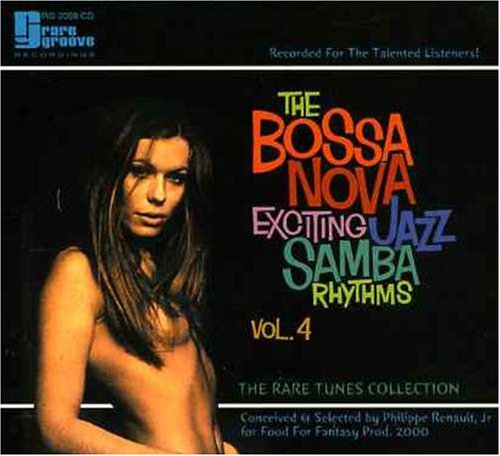| internet source: Latin Jazz |
Latin Jazz has a very long history but yet vague to most people. To define Latin Jazz, you first need to know what is Latin dance and Jazz dance.
Let's look at Latin
dances first. To a lot of people, Latin dance means International
Style, which includes Cha Cha Cha, Rumba, Samba, Jive and Paso Doble;
however, to no fewer than this 'a lot of people', Latin dances means
American Style, which include Rumba, Cha Cha Cha, Bolero, Mambo,
Merengue, Samba, East Coast Swing and West Coast Swing. Although some
of the dances are in both International Style and American Style,
they are not exactly the same. And, opposed to most people's
impression, Salsa is not included since it is grouped in the Night
Club Section. These dances all have their own characters and
personalities.
Jazz dance also has a
history with Ballet and now most ballet schools also offer jazz dance
courses; another dance genre that usually intricated with Jazz dance
is Tap dance.
Each one of the dances
itself is already a complex, when the two combined, it is in fact
getting harder to define. As dances express music, maybe we should
take a look at the music characteristics before we determine what
dance it is. But wait, what did they say? 'We play jazz with the Latin touch' (Tito Puente)? It doesn't actually tell me anything! Yet we at least know Bossa Nova is Latin Jazz.
 |
| internet source: Bossa Nova |
bo had quite an influence on Jazz dancing. Jazz only started to align with Ballet quite recently. Or a better way to say, Ballet, Latin, and Jazz dances all had some separate but parallel history at first, then at the time when communication become easier, the three got intricated with one another. In fact, all Latin dances were regarded Street Jazz at their earliest time, since Ballroom used to be the only decent social dances. It was not until Latin Dances got Ballroom-ised and Standardized, they started to get separated from the street.
 |
| internet source: Bossa Nova |
There has been a long
time the time when Latin Jazz associated with Swing dances, like
Hustle, East Coast Swing, West Coast Swing, Lindy Hop and Charleston.
However, as Latin Jazz in its own name is supposed to mean fusion
dances that jazz up all and every kind of dances, now we can also see
Salsa, Cha Cha Cha, Samba etc actions being incorporated into Latin
Jazz Dancing, sometimes with a stronger touch on Latin, sometimes
less.
In fact, up on the
stage, when we watch nice boardway shows you are watching Latin Jazz.
Also, the opening dances of the very popular DWTS, are dancing Latin
Jazz to pop music. As a Latin teacher, you can identify the elements
of all Latin acctions, as a Jazz dance teacher, you can also find
your moves. It is interesting that even though the dance is so
popular, I can hardly find any studio which offers classes about it.
I would like to be the first, anybody in?
** Check the Characteristics of other popular dance styles at Dance Style Basics.
...............................................................................................................
